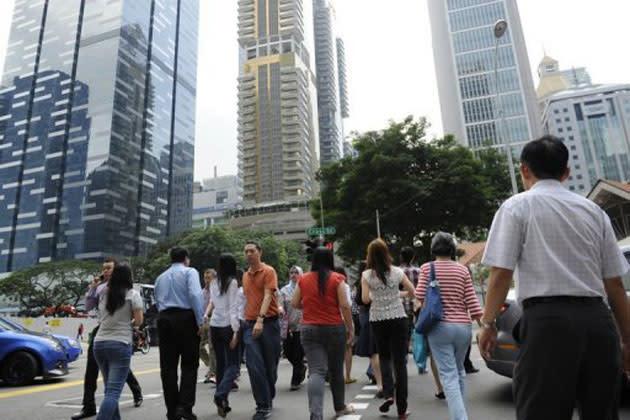COMMENT: The hard reality (and choices) about achieving happiness in Singapore

Benjamin Chiang is an enthusiast of good advertising, deep thinking, labour issues and chocolate. He also works for the National Trades Union Congress and writes at www.rangosteen.com. The views expressed are his own.
NTUC’s family development unit, U Family published a happiness survey last week citing 9 out of 10 working Singaporeans are happy overall.
As soon as the survey hit the internet, netizens turned out in full force hurling skepticism and cynicism at the report. They jeered, they booed, they flung their cyber tomatoes and eggs at the NTUC for even daring to publish the results of the survey.
In a reflective moment, I wondered if we really are unhappy -- or merely love contrarian opinions.
Our forefathers left their homes and travelled far, seeking happiness. They settled on a South East Asian island and stayed to press on, build a shining city of skyscrapers and give us a standard of living so remarkably different from what they knew.
Where once their life was simple, ours is today very, very complex.
My grandmother used to tell me stories of how poor they were back in the day, how she struggled to raise a family of seven children on the wages of a washerwoman. It was not an easy life, but her attitude towards living was very positive. In simple Cantonese, she would tell me “As long as I have food to eat, a roof over my head… I’m happy! I don’t need a lot of money to be happy, how much more can I eat?”
My grandmother’s sense of satisfaction did not rub off on me though. Like everyone else, I find myself huffing and puffing away on the treadmill of capitalism.
In the process of building us a good life, our pursuit of wealth has also left us with some very wretched frustrations: high costs of living and fierce competition. Once you’re running the race, it is difficult to stop.
It has been decades since my grandmother’s time. Today, we have far more resources at our feet -- we can do whatever we want with these resources to make us happy. Access to funds, infrastructure, travel and customers make it easy for us to do business. With many successful businesses comes a healthy labour market. If you want to pursue your interests -- you can do so because the backbone of the economy allows you to do so.
In this job landscape with so many possibilities, the problems my grandmother’s generation faced have (generally) come to pass. The overwhelming majority of Singaporeans have basic needs of food, shelter, clothing, education and security satiated… so now what?
Any student of Maslow will tell you we now look to achieve self-actualisation. This is when things become a little more nebulous. How do you know when you have self-actualised? How do you know when you’re “there”? You will never be.
If you want to be happy -- you have to know what makes you happy. Many of us run around in circles looking for something but not knowing what it is.
All this aside, there is also much that the administration can do to help us ease the knots out of the system. We must be quite familiar with these issues now so there is no need to repeat them. I do hope policy makers consider not just the mechanical features of new policies, but also with careful consideration to how people feel when these policies are enacted.
On a day-to-day basis, our employers can help us live more comfortable lives. Because of the double-edged nature of technology, our working lives have become so closely knitted to our private lives, it is sometimes impossible to live the two separately. Bosses must recognise this and give more breathing space especially during office hours for personal matters.
There is dignity in work and employees are generally proud of what they do. People work to earn money, but they do not work for money. They work for a good leader, they work for their own ambitions and will perform better if bosses knew how to motivate them well.
I end my reflective moment with this: we live in a metropolis -- a big and complex city, with its fair share of frustrations. Karma has it that this big city is also our little home. By stature and resources, this land has its limits -- if we want something, we have to give up some other thing. Choices must be made.
We must pursue happiness yes, but we have to be mindful about not pursuing a false utopia.

